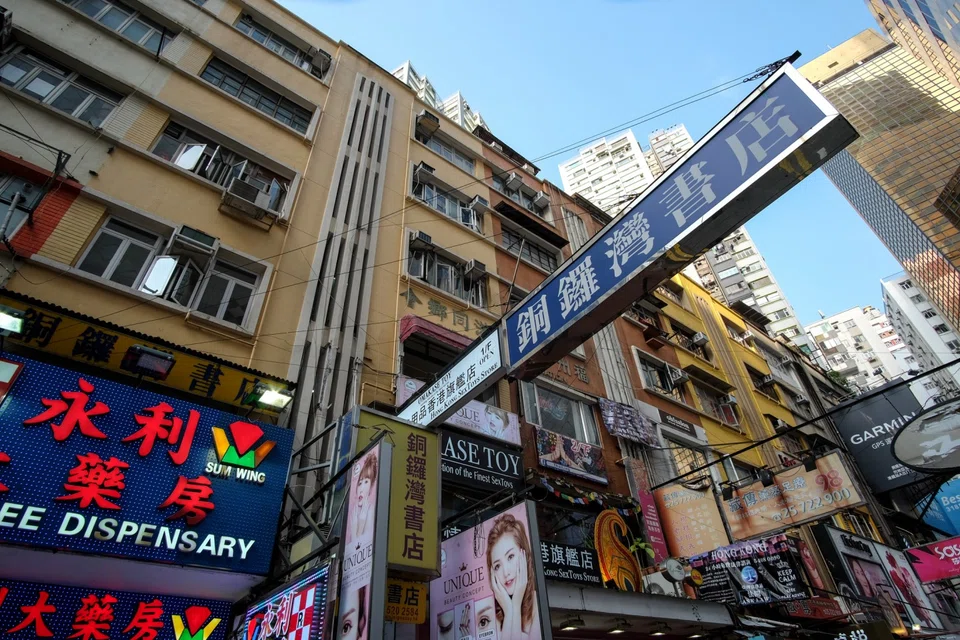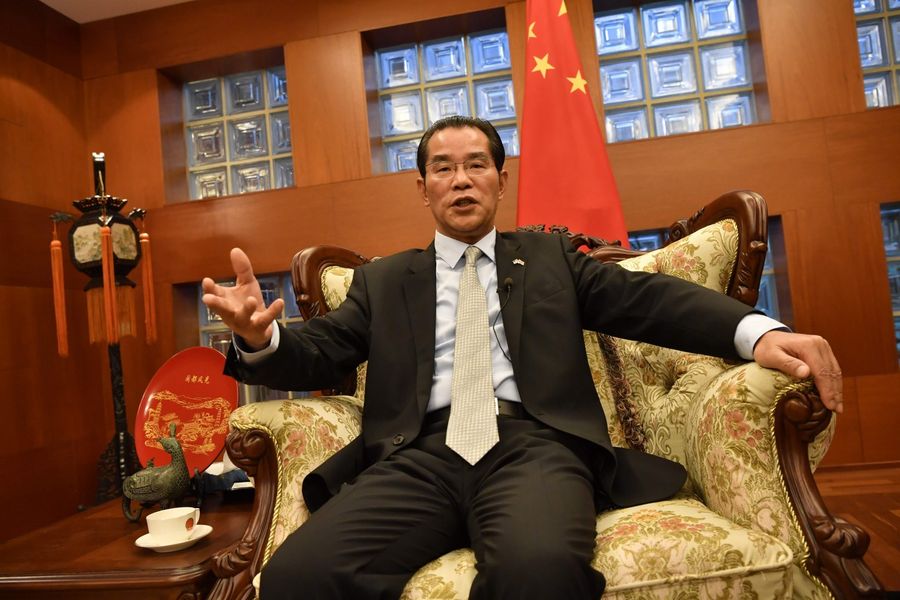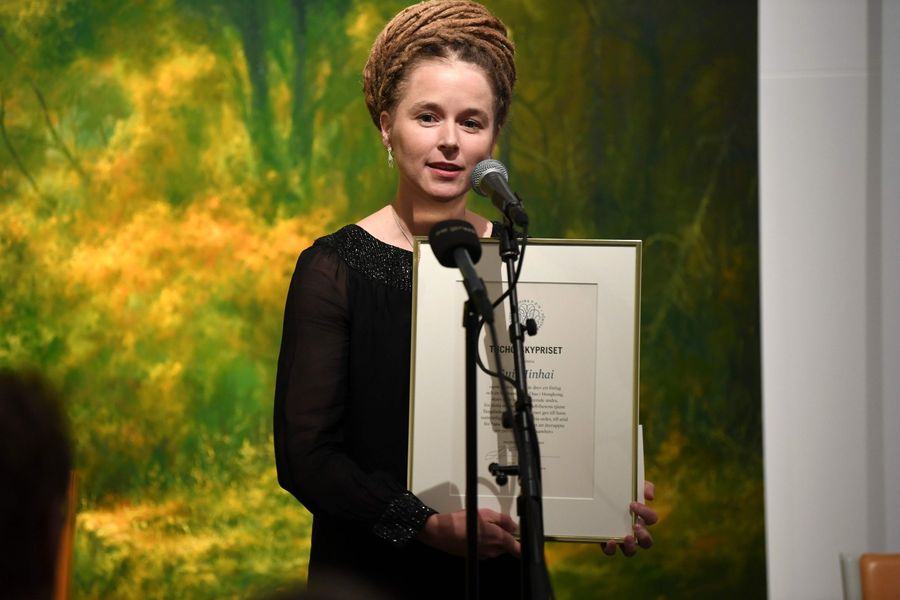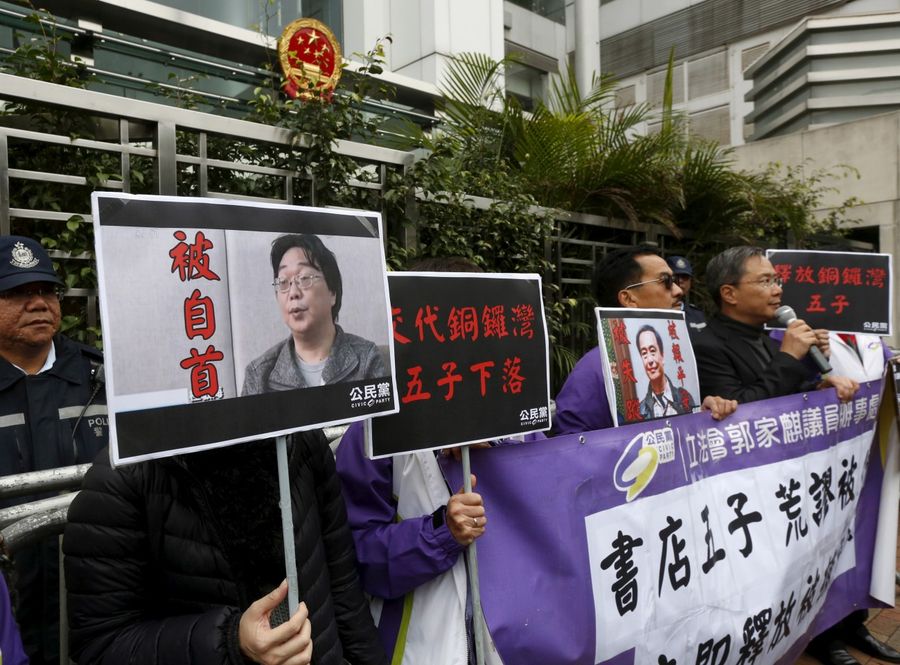Detained Hong Kong bookseller Gui Minhai hits the headlines again

15 November, Stockholm. Svenska PEN, the Swedish Centre of PEN International, an organisation that promotes literature and defends freedom of expression around the world, awarded Chinese-born Swedish book publisher Gui Minhai, currently detained in China, the 2019 Tucholsky Prize. This is an annual award given to a writer or publisher who faces persecution or has been forced into exile. The presence of Sweden's culture minister at the award ceremony greatly angered Chinese officials who were strongly opposed to Svenska PEN giving the award to Gui Minhai. They also objected to any Swedish government officials attending the ceremony.
The once widely known "Causeway Bay bookseller" is making headlines again.
According to a statement from the Chinese Embassy in Sweden, prior to the award ceremony, Chinese Ambassador Gui Congyou said to Swedish media that Gui Minhai's books are "full of lies and completely lacking in factual foundation". China strongly opposes Svenska PEN's act of giving an award to a "criminal and lie-fabricator" and "opposes even more resolutely any Swedish government officials attending the awarding ceremony", stating that it would bring about "serious negative impacts" on China-Sweden ties, hindering normal exchanges and cooperation, to which China will "surely take countermeasures". China further warned that, "some people in Sweden shouldn't expect to feel at ease after hurting the feelings of the Chinese people and the interests of the Chinese side."

However, when asked for clarifications regarding possible countermeasures, Ambassador Gui Congyou stated, "You will see. We ask Svenska PEN to show some basic respect for China and the 1.4 billion Chinese people and stop the wrong actions before it's too late. Let's wait and see."
However, Sweden ignored China's warnings and went ahead with presenting Gui Minhai the award. Swedish culture minister also attended the ceremony to encourage freedom of speech.

In response to Sweden's defiance, the Chinese Embassy in Sweden released another harsh statement, stating that Gui Minhai is a "criminal that committed serious crimes in both China and Sweden". Bestowing an award on a criminal is "an outright political farce. It is instigating crimes and sheltering criminals. It also constitutes a gross interference in China's judicial sovereignty."
The statement also quoted the Chinese saying that "good deeds will be rewarded with good results, whereas wrong deeds will only meet bad consequences". The statement concludes that Sweden has made a "serious mistake" that "undoubtedly creates serious difficulties to normal friendly exchanges and cooperation between China and Sweden. No countries, organisations or individuals should expect the 1.4 billion Chinese people to swallow bitter fruits of damaging the national interests and dignity of China."
Who is Gui Minhai
55-year-old Gui Minhai was born in Ningho and graduated from Peking University. He received his Swedish citizenship in 1996. In 2012, he established Hong Kong-based Mighty Current Media Company Limited with some others, launching his career in writing and publishing, targeting the mainland Chinese market. State media in China believes that Gui's books spread rumours that are harmful to society.
Gui Minhai became uncontactable in October 2015. As a seller of political books that were banned in mainland China, speculations of his disappearance created a public uproar. Certain Hong Kong media alleged that Gui Minhai was taken away from Hong Kong by the mainland's law enforcement officers, stating that such a move went against Hong Kong's judicial system and undermined the "one country, two systems" principle. It also threatens Hong Kongers' freedom of speech and personal freedom.

On 17 January 2016, a report from Xinhua News Agency revealed Gui Minhai's whereabouts. Xinhua alleged that Gui Minhai had been put on a two-year probation after causing the death of a girl as a result of drink driving in 2003. While still in his probationary period, he fled abroad, only returning to China on his own accord in October 2015 to turn himself in.
In October 2017, Gui Minhai served his sentence and was released. However, he remained charged for alleged illegal business operations and was not allowed to leave the country. On 20 January 2018, Gui Minhai was arrested by plainclothes police officers en route to the Swedish embassy in China (located in Beijing) from Ningbo in the company of two Swedish diplomats.
The Ningbo Municipal Public Security Bureau stated that Gui Minhai's arrest was due to his criminal activities of providing external parties with the country's secret information, endangering national security.
Gui Minhai's repeated arrests gained a lot of attention from overseas media. Then Swedish Foreign Minister stated that Gui Minhai's continued detention was a "very serious matter" and requested for his immediate release. The Chinese foreign ministry emphasised that it was simply handling the case in accordance with Chinese law.
On 2 February 2018, the International Publishers Association awarded Gui Minhai with the 2018 IPA Prix Voltaire (Freedom to Publish Prize). The Association lauded Gui Minhai for his courage and perseverance in publishing books in spite of the risks involved.
On 9 February 2018, Gui Minhai spoke with various media from China and overseas while detained in a Ningbo detention centre during a government-arranged interview. He said that he was "willing to live a peaceful life in China" and hoped that his family would "live a good life... not be manipulated by anyone". Gui Minhai also said, "If they [the Swedish government] continue to create trouble, I may consider giving up my Swedish citizenship."
The duration of Gui Minhai's sentence on account of being a threat to national security remains uncertain. What's certain is that Svenska PEN's high profile awarding of the 2019 Tucholsky Prize to Gui Minhai will bring about fresh clashes in China-Sweden relations. The war of words in issues pertaining to freedom of speech and democracy between China and the West persists.
